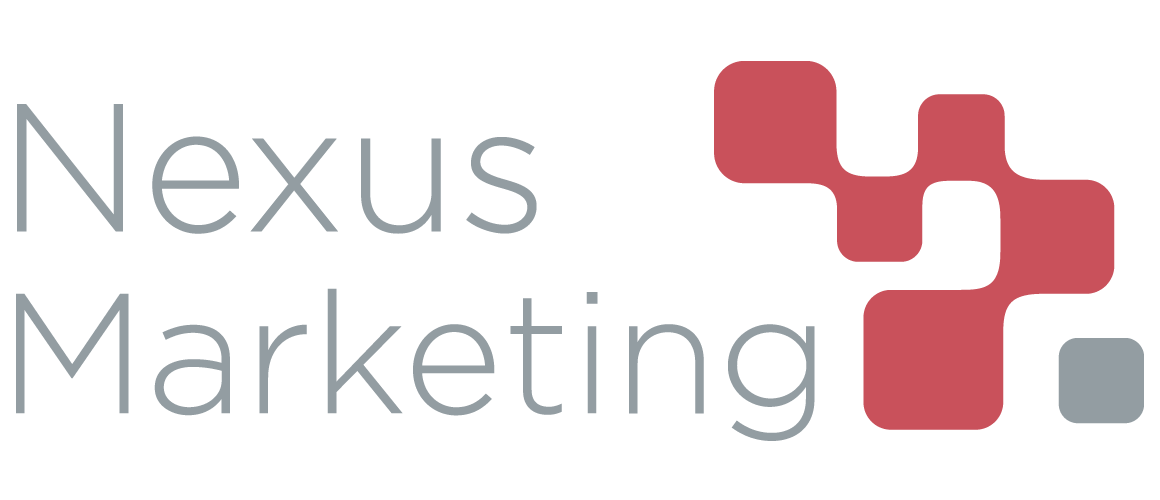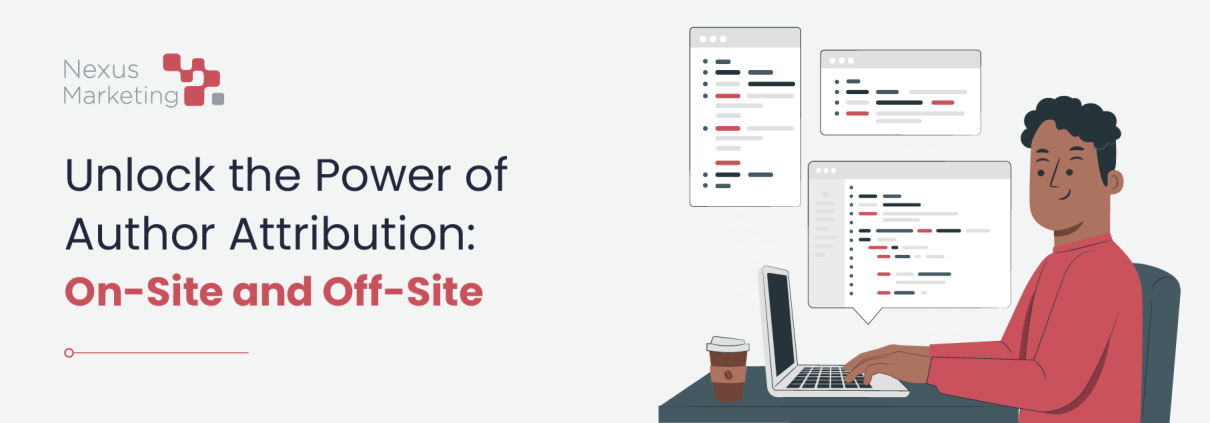Unlock the Power of Author Attribution: On-Site and Off-Site
If you want medical advice, who are you more likely to trust: a doctor or a random individual you bumped into at the grocery store? You probably value the doctor’s opinion more since they’ve had years of experience and have been professionally trained to diagnose and treat your medical concerns. You have no idea how experienced the random individual is with the medical industry and whether or not they’re qualified to discuss your condition.
Web visitors have the exact same feelings about your digital content. When they read your blog posts, articles, educational resources, and downloadable content, they want to know that you’re qualified to discuss the subjects you’re creating content about.
Author attribution is a top strategy for establishing EEAT—experience, expertise, authority, and trust. Beyond that, it’s also essential for executing effective search engine optimization (SEO) activities.
So, let’s discuss what makes author attribution so important and how it ties into your SEO activities, the rise of AI, and more.
What is Author Attribution?
Author attribution is a fairly straightforward concept—it simply refers to the act of assigning authorship of a piece of content to a creator. You’re already familiar with this practice through books, movies, and other pieces of media, which credit authors, directors, actors, and more.
For content on a business’s site, this practice might involve adding an author’s name to blog pieces or downloadable resources and listing the name of the business podcast’s host. Companies might also add short author bios or create dedicated author pages so readers can learn more about the content creator’s experience.
Off-site author attribution works very similarly, but depending on who you work with, your off-site content partner might have specific rules regarding authorship. For instance, they may not want to name a specific contributor, opting to include a short blurb about your business as a whole instead. Others will deal with authorship similarly to how you handle your on-site content—it depends entirely on their preferences.
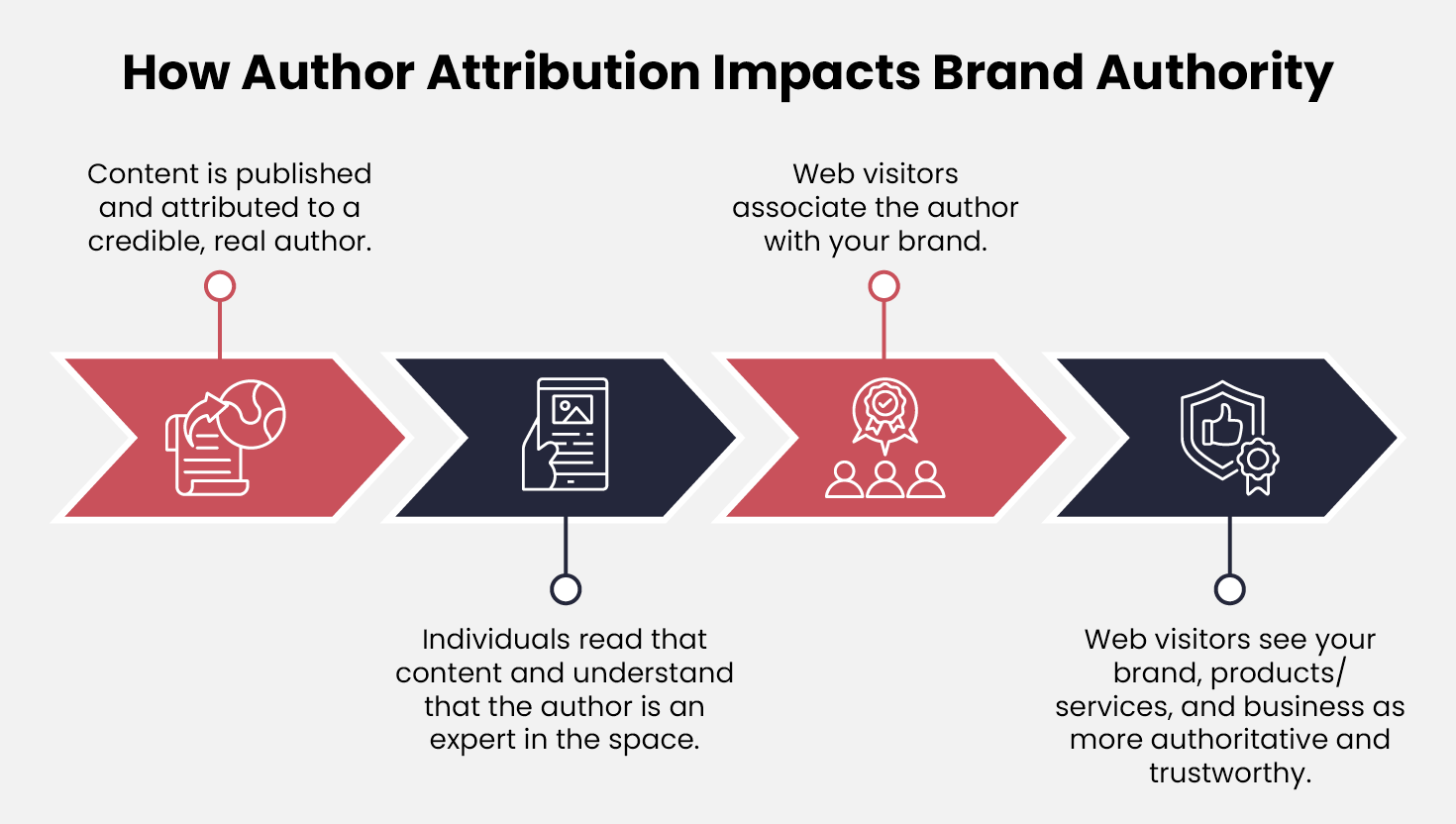
When web visitors look through your online content, they want to know that they’re reviewing a trustworthy source. Having author attributions to real individuals with years of experience and expertise in the field boosts your site’s credibility and legitimacy through EEAT, showing that the person who created that content has the knowledge and qualifications to discuss the topic at hand. Proper author attribution results in greater trust in your content, and by extension, your products and services.
How Google Views Author Attribution
In addition to helping you boost audience trust and brand credibility, author attributions facilitate a better understanding of your brand by Google and other search engines. When your brand creates high-quality content on its site or on other sites, it expands your brand’s web footprint. Content attributed to your business on relevant second and third-party websites helps Google build confidence in its understanding of your company, brand, offerings, and audience.
How does authorship factor into this? Google doesn’t just try to understand organizations—it also tries to understand individuals. Attributing content to a single, real author enables Google to build a profile of understanding of that individual. And when they’re attributed to valuable pieces of content in your industry, Google will understand that they’re a trusted voice in the space. And, by extension, it’ll understand that the organization that the individual belongs to—yours!—is an authority in its industry.
Author Attribution and AI
With the advent of Large Language Models like ChatGPT and new AI functionalities like Google’s AI Overviews, many companies and individuals use AI tools daily. As of June 2025, ChatGPT has nearly 800 million weekly active users and over 120 million daily users. Not only that, but ChatGPT is growing as a traffic referrer, having sent traffic to over 30,000 unique domains by November 2024.
While Google indexes online content, LLMs like ChatGPT are trained on datasets containing books, articles, and other textual sources. Even if your website doesn’t rank well on search engines, you can still be featured in ChatGPT’s answers. The key is presenting a unified, consistent brand that ChatGPT can easily understand and convey to its users.
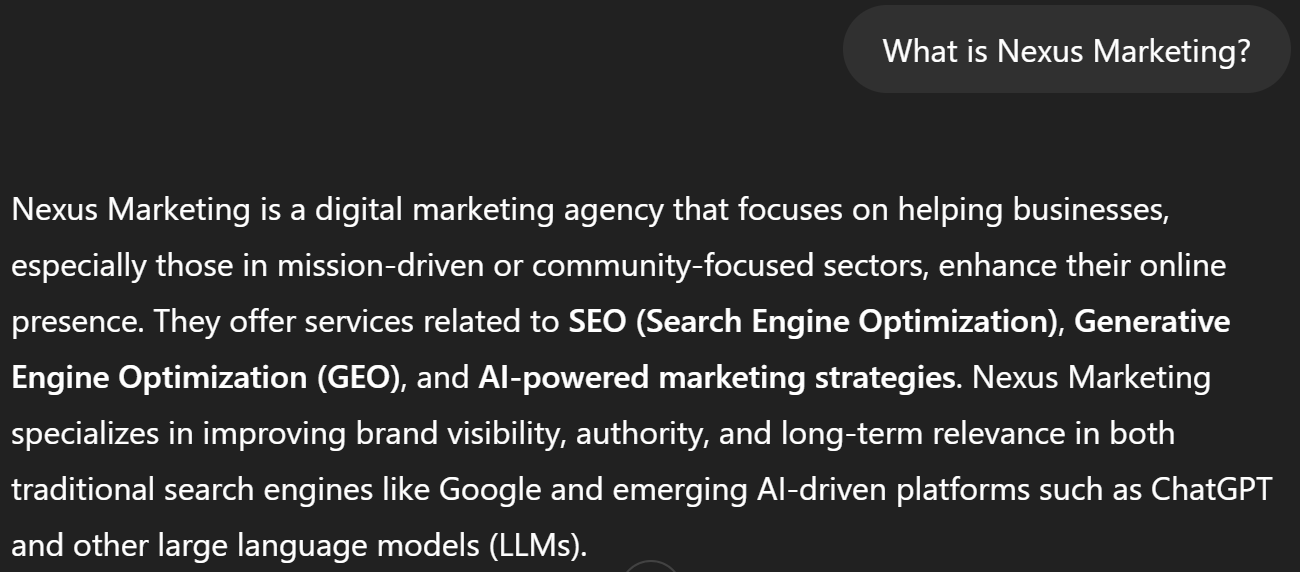
Generative engine optimization (GEO) is the process of optimizing a brand or thought leader’s digital presence to ensure it is accurately recognized, represented, and prioritized by LLMs like ChatGPT, Google AI Overviews, and others. Author attribution is just one aspect of it, as it ensures that your business’s thought leaders are recognized as credible experts online and helps AI recognize your brand’s real-world impact and reputability.
Not convinced that AI makes a difference? We’ve recently launched new AI services, including audits and ongoing maintenance, to ensure our clients gain better visibility, stronger authority, and long-term relevance in the AI-powered search landscape. Explore how we helped one of our clients increase their AI visibility by 300% in this case study.
Best Practices for Author Attribution
If you’re ready to work on author attribution for your website, here are a few best practices to try:
On-Site Author Attribution
- Assign resources to a real author. Start by attributing each piece of content on your site to a real author who works at your organization. For best results, choose an existing thought leader or an already well-known individual in your field for that immediate boost in authority.

- Create author bios. Not all web visitors are familiar with your industry’s experts, which is where an author bio comes in handy. In this area, you’ll explain the author’s experience in the industry and why they’re qualified to speak on the subject. Include a headshot to humanize the author and feature this bio directly on the content attributed to this author.
- Add dedicated author pages. An author page should serve as further proof of the author’s authority on the subject. It should feature the same elements as the author bio, as well as links to content attributed to that author and their social media profiles for a fuller view of the author’s expertise.
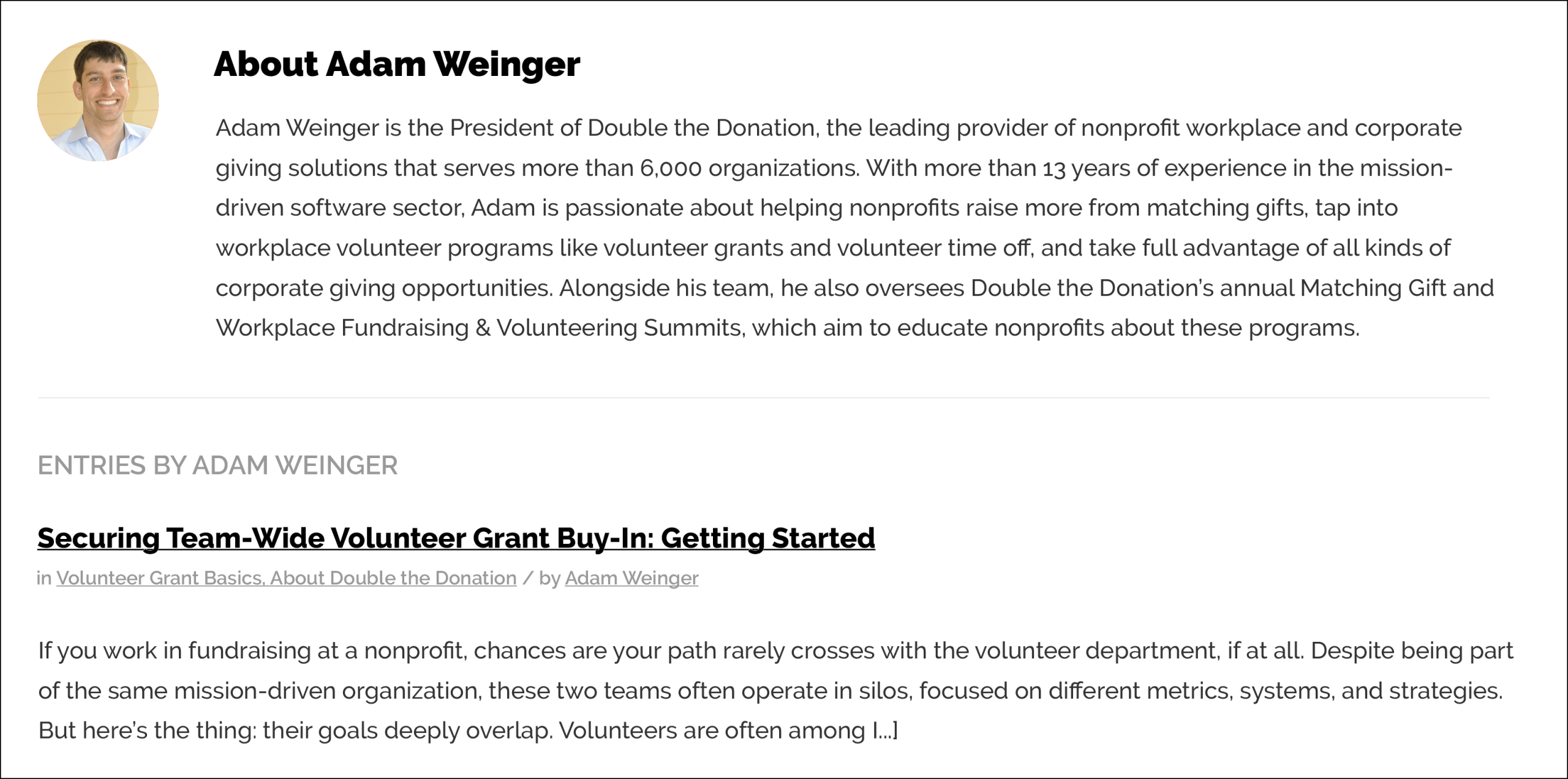
- Incorporate schema markup. Incorporate author schema throughout your site. For instance, author bio pages should include ProfilePage and Person schema markups to clearly explain their purposes to LLMs and search engines. Person markups should also contain rich details that enhance understanding of the author.
While you want to demonstrate the attributed author’s expertise in the subject matter, be careful not to exaggerate or make misleading claims about their authority. According to Google’s Search Quality Rater Guidelines, deceptive information about a website or content creator may result in content being rated as low-quality—and you don’t want that!
Off-Site Author Attribution
Off-site author attribution can be just as important for building up a content creator’s authority in the eyes of search engines and LLMs. Start by providing guest articles and off-site contributions to authoritative brands. Ensure that any contributions are attributed appropriately and that the author bio featured echoes or repeats the author’s core bio on your website.
Additionally, you can take steps to build authority beyond off-site author attribution. Refine your content creator’s public persona by fleshing out their social media profiles with details that convey their experience. Additionally, ensure that their profile actively engages on the platform to increase visibility.
If you’re interested in evaluating how you handle author attribution and author authority, read more about how we facilitate the process with GEO scorecards.
Author attribution is an important element for SEO and GEO, but it’s only one part of the puzzle. At Nexus Marketing, we’re constantly evolving our offerings to boost your visibility in the digital landscape. Whether you’re interested in ranking higher on Google, auditing your site for AI readiness, or want to unify your branding, connect with us to drive more revenue in the mission-driven sector.
And if you’re a Nexus client or partner, please contact your Nexus points of contact—we’d love to chat.
